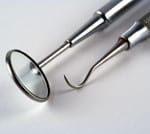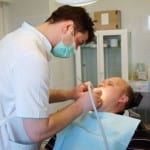 Dental infections can cause sudden, severe pain. If you have a dental infection, don’t suffer in silence! Our amazing City Dental team is here to help.
Dental infections can cause sudden, severe pain. If you have a dental infection, don’t suffer in silence! Our amazing City Dental team is here to help.
What is a dental infection?
Dental infections are caused by bacteria. Often, the first sign of an infection is decay, which erodes the enamel, causing a hole known as a cavity to form. Cavities can be treated easily with a filling. However, if they are left untreated, there is a risk that infection can spread to other parts of the tooth, increasing the risk of more severe infection and the development of dental abscesses.
Symptoms of a cavity include pain, weakness in the tooth, tenderness in the tooth and sensitivity. In some cases, you can also feel the hole when you run your tongue over the surface of the tooth. It may also be possible to see the cavity when you look very closely at your mouth in the mirror.
About dental abscesses
Dental abscesses are fluid-filled sores that can develop inside the tooth (periapical abscess) or between the teeth and gums (periodontal abscess). Abscesses contain pus, which is a yellow fluid that contains bacteria. Abscesses cause pain, which may be severe and throbbing, tenderness and inflammation and they can also cause you to suffer from fever and make you feel under the weather.
Normally, abscesses are treated by doctors. However, in the case of dental abscesses, these must be treated by a dentist. Dental abscesses are treated in a different way and they need to be drained and removed, rather than treated with a course of antibiotics.
If you think you may have a dental abscess or you have severe dental pain, call us and we will do our best to see you and free you from pain as quickly as possible.












 The health of your teeth is very important. Just ask anyone who has suffered the pain of serious toothache or losing a tooth to infection. Cleaning with brushing and flossing is very important to remove plaque and keep your teeth safe from cavities and other dental traumas such as tooth abscesses. But it is important not to ignore the health of your gums, as these can be just as important to your overall oral health.
The health of your teeth is very important. Just ask anyone who has suffered the pain of serious toothache or losing a tooth to infection. Cleaning with brushing and flossing is very important to remove plaque and keep your teeth safe from cavities and other dental traumas such as tooth abscesses. But it is important not to ignore the health of your gums, as these can be just as important to your overall oral health.

